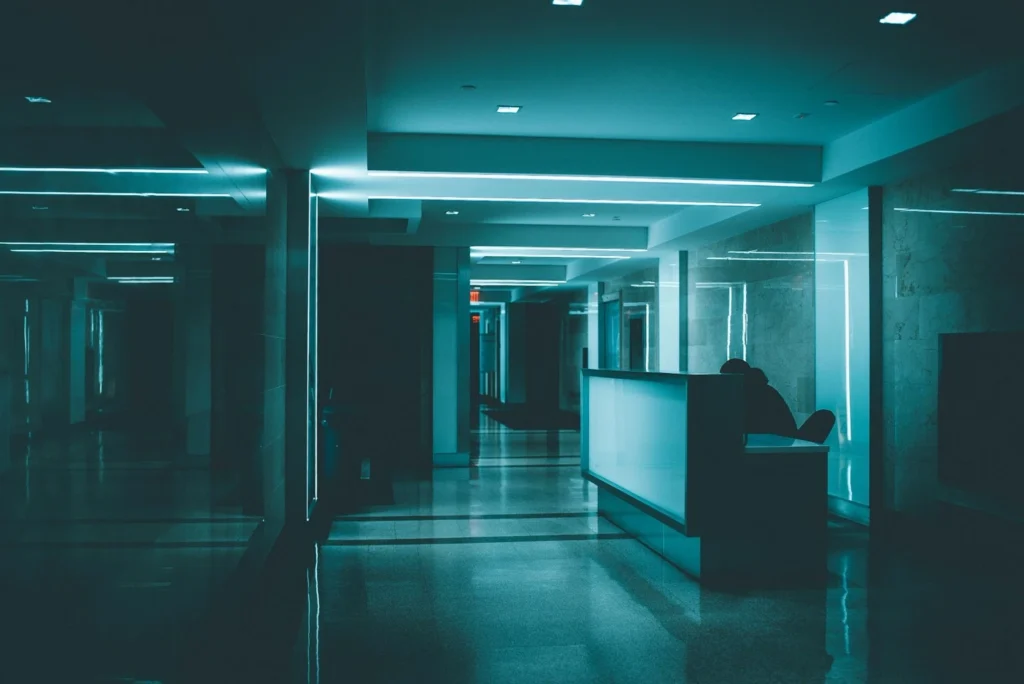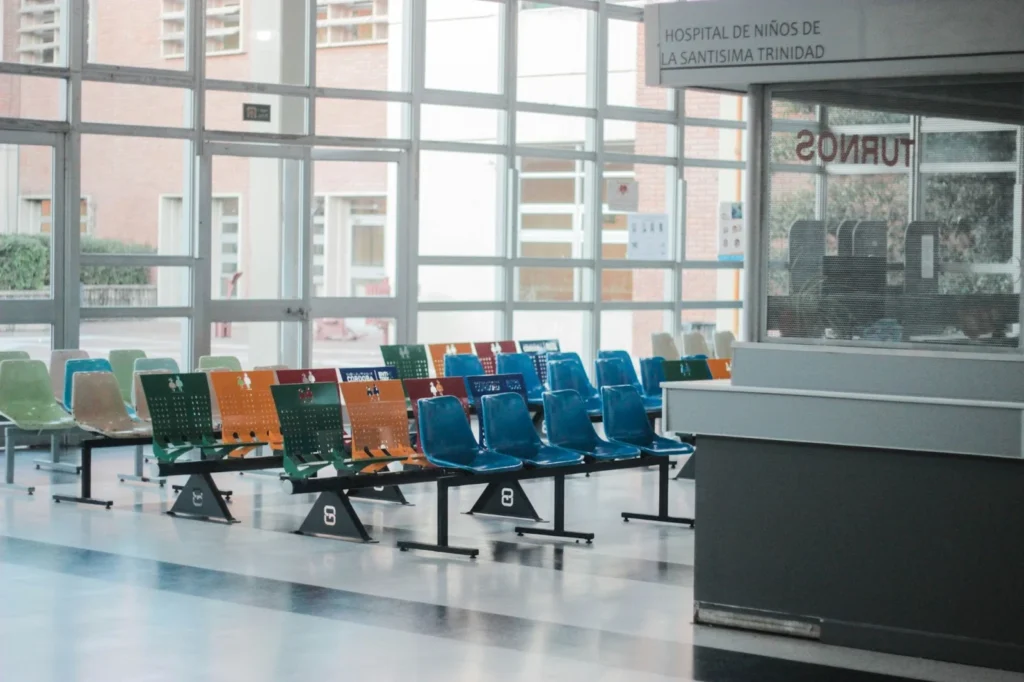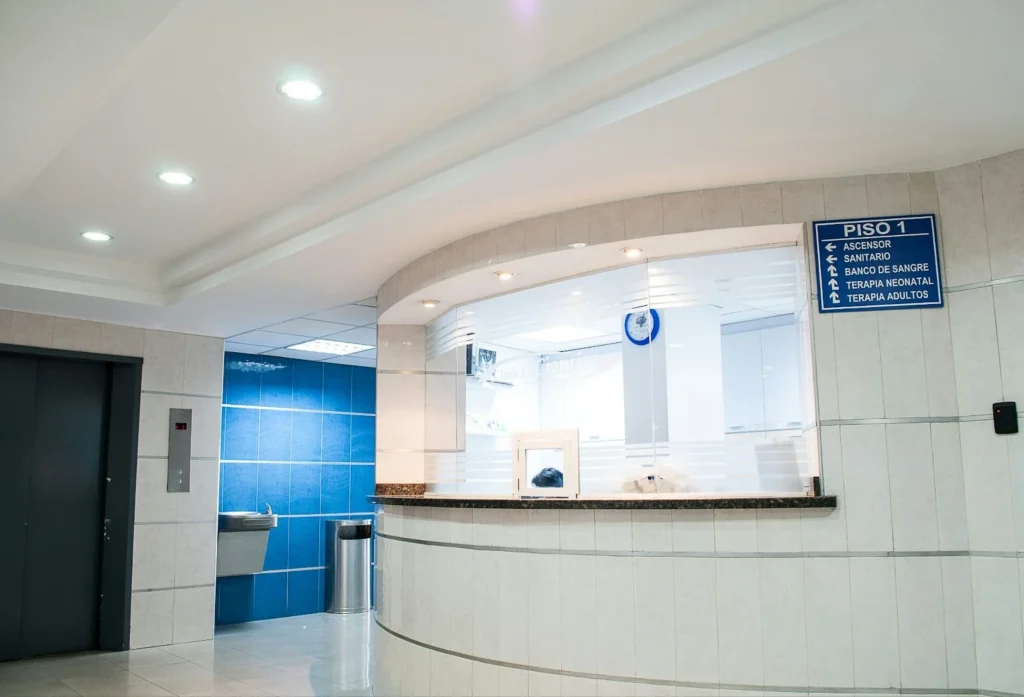Written By: Brad Campbell | April 8, 2025
Hospitals are places of healing, but they’re also becoming increasingly violent. Hospital staff frequently receive threats and even face physical attacks, giving rise to the need for stronger security measures to protect them.
Impact-resistant hospital security windows, often made from polycarbonate-based security glazing, have become an essential solution for protecting healthcare workers, visitors, and patients alike.
Recent years have seen an alarming rise in violence against healthcare workers. According to a report from the Bureau of Labor Statistics, healthcare professionals are five times more likely to experience workplace violence than employees in all other industries.
The COVID-19 pandemic further exacerbated the situation, with staff facing increased aggression due to patient frustration, staffing shortages, and social tensions.
A survey by National Nurses United found that nearly half of registered nurses reported an increase in workplace violence, with many nurses experiencing physical or verbal assaults from patients or visitors.
The reasons for this surge in violence are multifaceted, ranging from patient confusion about their medical conditions to grief over the loss of loved ones, mental health disorders, and frustration over long wait times.
Hospitals, being public spaces where individuals from all walks of life converge, are prime targets for such outbursts. Aggravating factors include 24-hour access and the handling of mentally ill, intoxicated, and potentially criminal patients.
Emergency departments are particularly vulnerable — the combination of high stress and potentially volatile situations leads to escalated violence. The consequences are severe, with staff facing physical injury, emotional trauma, and the disruption of patient care.

In light of these growing concerns, the Occupational Safety and Health Administration (OSHA) has issued guidelines to help healthcare facilities improve safety and reduce risks.
One key element in the OSHA guidelines is the installation of physical barriers in certain areas where employees are in close proximity to patients or visitors.
These barriers are necessary for any fixed work location outside of direct patient care areas and resident rooms, including entryways, lobbies, check-in desks, triage areas, hospital pharmacy windows, and bill payment counters.
OSHA mandates that these barriers must block face-to-face pathways between individuals, particularly where employees cannot maintain a minimum of 6 feet of distance. The barriers must also be easy to clean, ensuring hygiene standards are met. They may have pass-through windows incorporated for easy transactions.
While the guidelines for hospital security windows offer some flexibility, they emphasize the importance of these barriers in preventing violent encounters in high-traffic areas.
Impact-resistant riot glass is an ideal solution for hospitals looking to improve safety and security while maintaining a welcoming, professional environment.
Riot Glass is designed to withstand physical impact and provide a high level of protection against aggressive individuals. It is commonly used in areas where violent behavior is more likely to occur, such as emergency rooms, pharmacies, and reception desks.
In addition to its ability to resist physical damage, Riot Glass boosts security without reducing visibility, ensuring that staff members can monitor patient and visitor activity without compromising their own safety.
Hospitals are diverse environments, and the application of Riot Glass should be tailored to the specific needs of each facility. Here are some key areas where Riot Glass barriers can make a significant difference:
Emergency rooms are high-stress zones where patients and their families are often dealing with trauma, injury, or anxiety. This environment can lead to aggression directed at healthcare workers.
Installing Riot Glass at emergency room check-in desks and triage areas can help protect staff members from potentially violent outbursts.
Creating physical barriers in these key areas of hospitals can reduce the risk of attacks and ensure that staff can focus on providing emergency care, rather than managing disruptive behaviors.

Hospital pharmacies handle sensitive medications and patient prescriptions, making them prime targets for aggressive behavior.
The pressure of waiting for prescriptions, combined with the frustration of medical procedures, can result in angry patients or visitors. There’s also the risk of individuals with addictions attempting to steal prescription drugs.
Implementing impact-resistant glazing for pharmacy windows can protect staff while maintaining clear communication with patients.
The first point of contact in a hospital is often the reception desk, where patients and visitors may be frustrated or anxious.
Providing a barrier between front-line staff and the public is crucial in preventing verbal or physical assaults.
Riot Glass can be installed in these areas to ensure that workers are protected from harm while still being able to interact with visitors and patients.

Large hospital waiting areas can become chaotic, particularly in cases of long wait times or perceived neglect.
In these spaces, Riot Glass barriers can create a safe distance between visitors and staff. This allows hospital employees to manage situations effectively, de-escalating potential conflicts before they can escalate into violence.
The installation of Riot Glass in hospitals offers several advantages that go beyond mere physical protection:
As violence against healthcare workers continues to rise, hospitals must adopt comprehensive strategies to protect their staff and patients. Impact-resistant Riot Glass is a vital component of these strategies, providing an effective and durable solution for high-risk areas.
Installing Riot Glass hospital security window barriers at key locations, including emergency rooms, pharmacies, reception desks, and waiting areas, helps hospitals create a safer environment for healthcare workers and visitors alike.
Riot Glass offers a proven solution that mitigates risks, prevents violence, and allows healthcare workers to focus on what matters most — providing exceptional care.
Contact us today for more information or to get started with a hospital security glazing retrofit.

HOW CAN WE HELP YOU?
